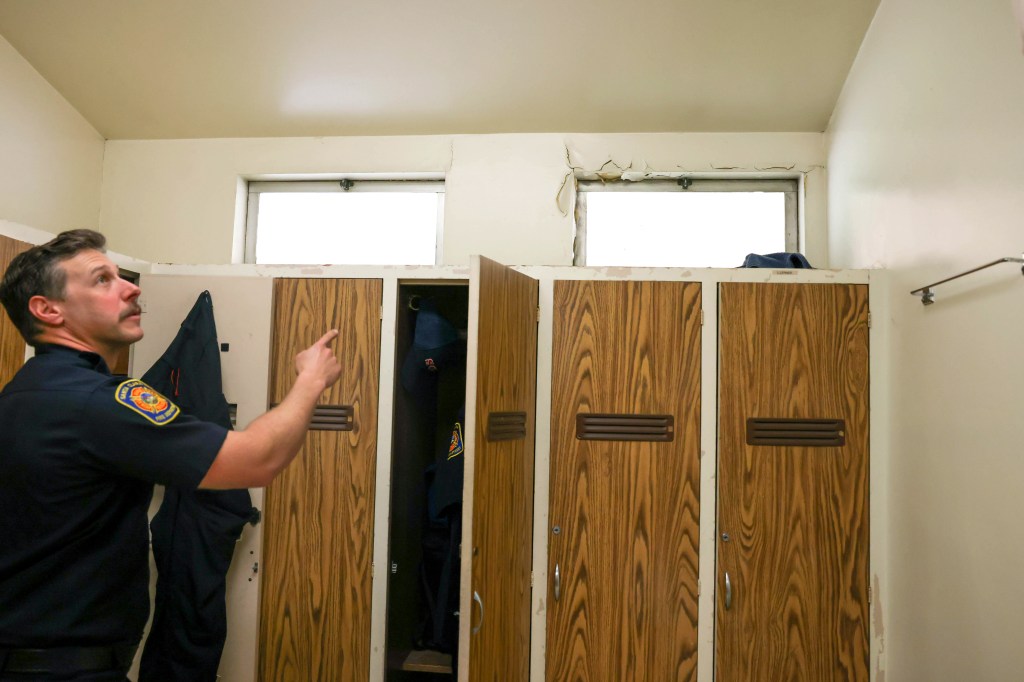
In the heart of Silicon Valley, a region renowned for its innovation and wealth, Santa Clara has struggled for decades to keep pace with its aging infrastructure.
Many of its city facilities — parks, community centers, fire stations and swimming pools — reached the end of their expected lifespan years ago. But Santa Clara historically hasn’t had the revenue streams to maintain or replace its physical assets, leading to what is now a whopping $624 million in unfunded infrastructure needs, according to City Manager Jovan Grogan.
The ballooning problem came to a head earlier his year when the George F. Haines International Swim Center — a storied facility widely considered to be Santa Clara’s crown jewel — closed over safety concerns following decades of neglect.
Santa Clara’s plight is not unique. Cities across the Bay Area are grappling with similarly aging infrastructure and significant funding challenges to address deferred maintenance.
“It’s literally the cost of replacing many of our facilities that were built in the 50’s and 60’s,” Grogan said. “Many of them are aging at the same time.”
In neighboring San Jose, the maintenance backlog for the city’s parks alone is more than $544 million, city spokesperson Carolina Camarena estimated. And across the bay in Berkeley, the city’s unfunded infrastructure is expected to be $2.1 billion by the end of this fiscal year.

It’s a symptom of the suburban sprawl that ignited after World War II when the region began to boom and large swaths of single-family homes shot up. Whole neighborhoods of low density housing that stretched far across cities meant more roads, sewer lines and other infrastructure to maintain.
At the time, many cities relied on property taxes to generate revenues, said Michael Lane, the state policy director for urban think tank SPUR. But when California voters passed Proposition 13 in 1978, effectively limiting property tax increases, things changed.
“Prior to Prop 13, that was the way to generate additional revenues by annexing more land and building, and you’d get that revenue and the new property taxes,” Lane said. “When property taxes were capped then that was not the source of revenue from growth, but it actually created a burden, and so you had to be careful about how you grew and where to be able make sure your property taxes could cover all the ongoing maintenance for all the services.”
For years, Santa Clara has considered going to the voters to seek funding for its infrastructure needs, and now it looks as if 2024 is the year it might finally happen. Grogan said city officials plan to recommend that the City Council place a bond measure on the November ballot to help tackle the $624 million backlog.
But general obligation bonds have become increasingly unpopular with many Californians, and the high threshold to victory — two-thirds of the vote — makes them sometimes difficult to pass. If Santa Clara residents sign off on the potential measure at the ballot box, Grogan acknowledges that it’s not a cure-all.
“There’s no silver bullet that’s going to solve this problem,” he said. “Even a capital bond is the largest slice of the pie, but it’s not the only slice of the pie.”
Mayor Lisa Gillmor said she’s looking toward two developments in the city to help create a sustainable revenue stream: Levi’s Stadium and the massive Related Santa Clara project next door.
The mayor said the stadium, managed by the San Francisco 49ers, has failed to deliver millions to the city’s general fund as promised but hopes that changes. The Related project, which could be nearly 10 million square feet of stores, restaurants, homes and hotel rooms, has hit roadblocks due to the pandemic and an evolving real estate market. But developers are pushing forward, and residents could be moving in by 2025.
“I think that just those two alone would be a huge game changer for the city of Santa Clara in terms of long-term revenue streams that could be used for all of these deferred capital improvements,” Gillmor said.
Adam Thompson, a longtime Santa Clara resident, said that he believes part of what has exacerbated his hometown’s problem is the city’s history of paying its leaders hefty salaries.
Before former city manager Deanna Santana was fired by the council in 2022, she was one of the highest paid city managers in the state, raking in a total compensation package of $765,152 in 2020. Earlier this year, Grogan received a merit raise of 1.23% after seven months on the job over concerns that he wasn’t the highest paid city employee. His new annual base salary is $418,220.
“I don’t mind paying the high salaries if I saw the results,” Thompson said. “If I had a great city with great amenities and we had a little slush fund for capital improvements so as things came up we would be able to clean it up and go, that would be great, but that’s not what’s happened. We’re paying all the money to city services and the top brass, and we’re not actually getting value back for it, we’re just burning it up.”



















